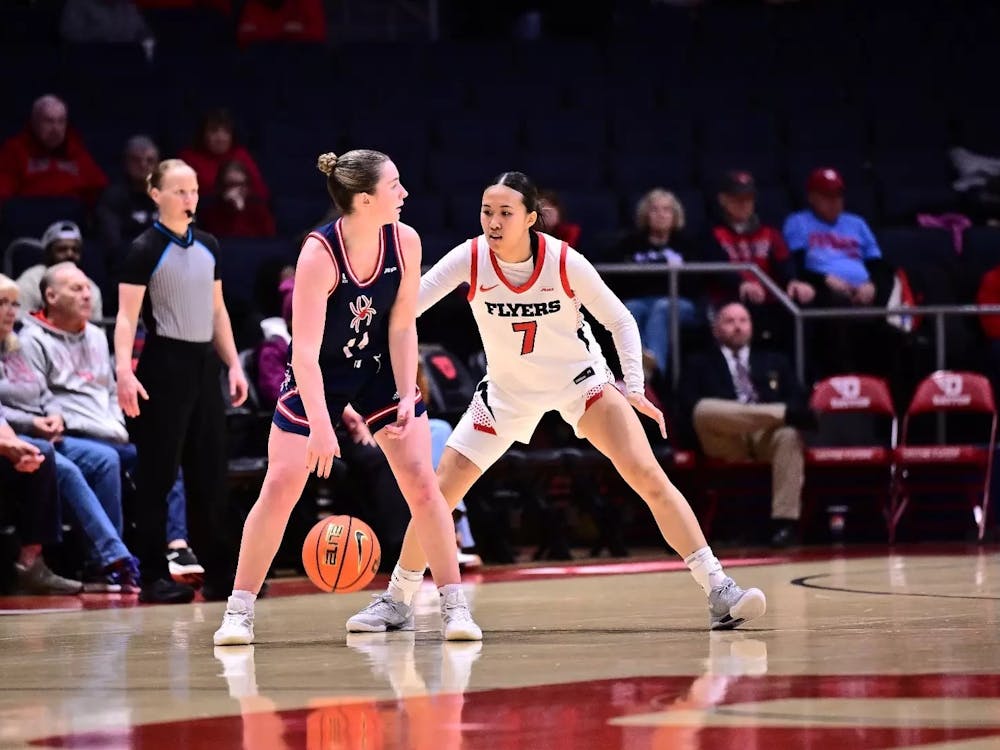After the “It Ends Now” program on Sept. 8 erupted into impassioned discussions regarding Title IX investigations and sexual misconduct, questions over the confidentiality of assault and disciplinary cases by way of FERPA have emerged.
FERPA, short for the Family Educational Rights and Privacy Act, is a federal law that applies to any institution or educational agency that receives funds from The Department of Education and was created to protect the privacy of students' education records. According to the university, Richmond receives approximately $2 million in competitive external grant funding each year, thus requiring the school to maintain FERPA laws.
Two weeks ago on Sept. 6, Cecilia Carreras, a Westhampton College student, shared her story on the Huffington Post contributor network. In her piece, she asserted that the university’s administration mishandled the Title IX investigation of her sexual assault.
The following afternoon, the university sent out an email to the student body calling Carreras’ assertions “inaccurate,” inciting criticism and controversy across campus.
The next night, the pre-scheduled “It Ends Now” forum turned into a dramatic questioning of the university’s administration and demands for details on Carreras’ case. At the forum, Mia Renoso Genoni, dean of Westhampton College; Joe Boehman, dean of Richmond College; Steve Bisese, vice president for student development; and Maura Smith, Title IX coordinator and director of compliance all fielded questions from the audience.
“We cannot comment on individual cases,” Bisese said. Genoni agreed, saying, “We are federally prohibited, as I have said, from talking about details. We just can’t.”
The federal prohibition to which Genoni was referencing is FERPA. Frank LoMonte, executive director of the Student Press Law Center, says FERPA is often wrongly cited.
“It’s certainly not all or nothing, which is a mistake a lot of colleges make … because they can’t tell you everything, they tell you nothing. FERPA is a very narrow law, it (is) only about the confidentiality of records, not the confidentiality of facts."
As LoMonte alluded to, Richmond is not the only school to cite FERPA in sexual assault cases. In a New York Times article from January, Jon Krakauer, the author of Missoula: Rape and the Justice System in a College Town, wrote of his experience with higher-ed institutions, FERPA and sexual assault.
“When universities want to deny public access to information that might blemish their reputations, they routinely claim that Ferpa prevents them from disclosing such information — even when disclosure is plainly warranted," Krakauer wrote. "In many instances, the suppressed records concern sexual-assault complaints."
Though Genoni was the only administrator not employed by the university at the time of Carreras’ case, the dean has publicly commented on it, which falls in line with policies stated by the university. At the forum, Genoni said: “I’m not saying if you knew what I knew you’d agree. I’m saying if you knew what I knew, we could have a conversation.”
University of Richmond policy states that any record that directly impacts an official’s ability to achieve his or her job is considered a legitimate educational interest and can therefore be disclosed.
Enjoy what you're reading?
Signup for our newsletter
“A school official has a legitimate educational interest if the official needs to review an education record in order to fulfill his or her professional responsibility,” the policy reads. By serving as dean of Westhampton College, Genoni has grounds on which to view the Carreras case file and other educational records.
At the ‘It Ends Now’ forum, Genoni later defended the administration’s choice to describe Carreras’ claims as "inaccurate," saying, “We could not not say that that statement was inaccurate. We had to say it.
“We know that was not what dean Fabian said, but that does not make her a liar.”
By commenting on Carreras’ claims, however, LoMonte asserts that the university is playing both sides — citing FERPA when it suits them and claiming its protection of privacy in an effort to prevent the disclosure of certain information.
“If their position is that FERPA prevents them from commenting on what happens in a disciplinary process, then I’m not sure how they can say ‘FERPA doesn’t allow us to say what happened, but we can tell you what she says didn’t happen,’” he said. “It sounds like they’re trying to have it both ways. It sounds like they’re trying to give away the contents of a disciplinary hearing without giving it away.
"I don’t think you can have that both ways.”
Contact managing editor Lindsay Schneider at lindsay.schneider@richmond.edu
To submit an anonymous tip, click here.
Support independent student media
You can make a tax-deductible donation by clicking the button below, which takes you to our secure PayPal account. The page is set up to receive contributions in whatever amount you designate. We look forward to using the money we raise to further our mission of providing honest and accurate information to students, faculty, staff, alumni and others in the general public.
Donate Now



